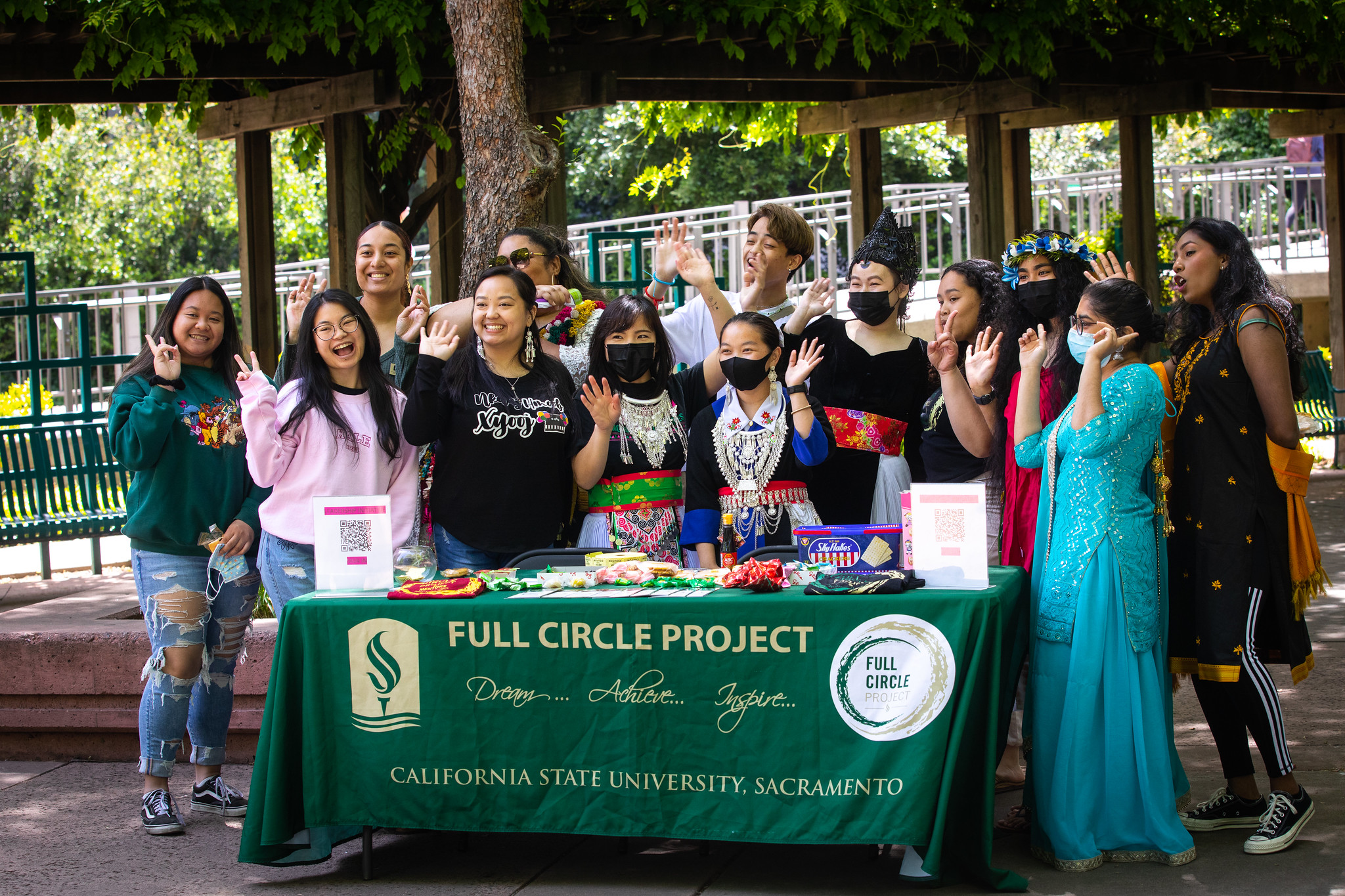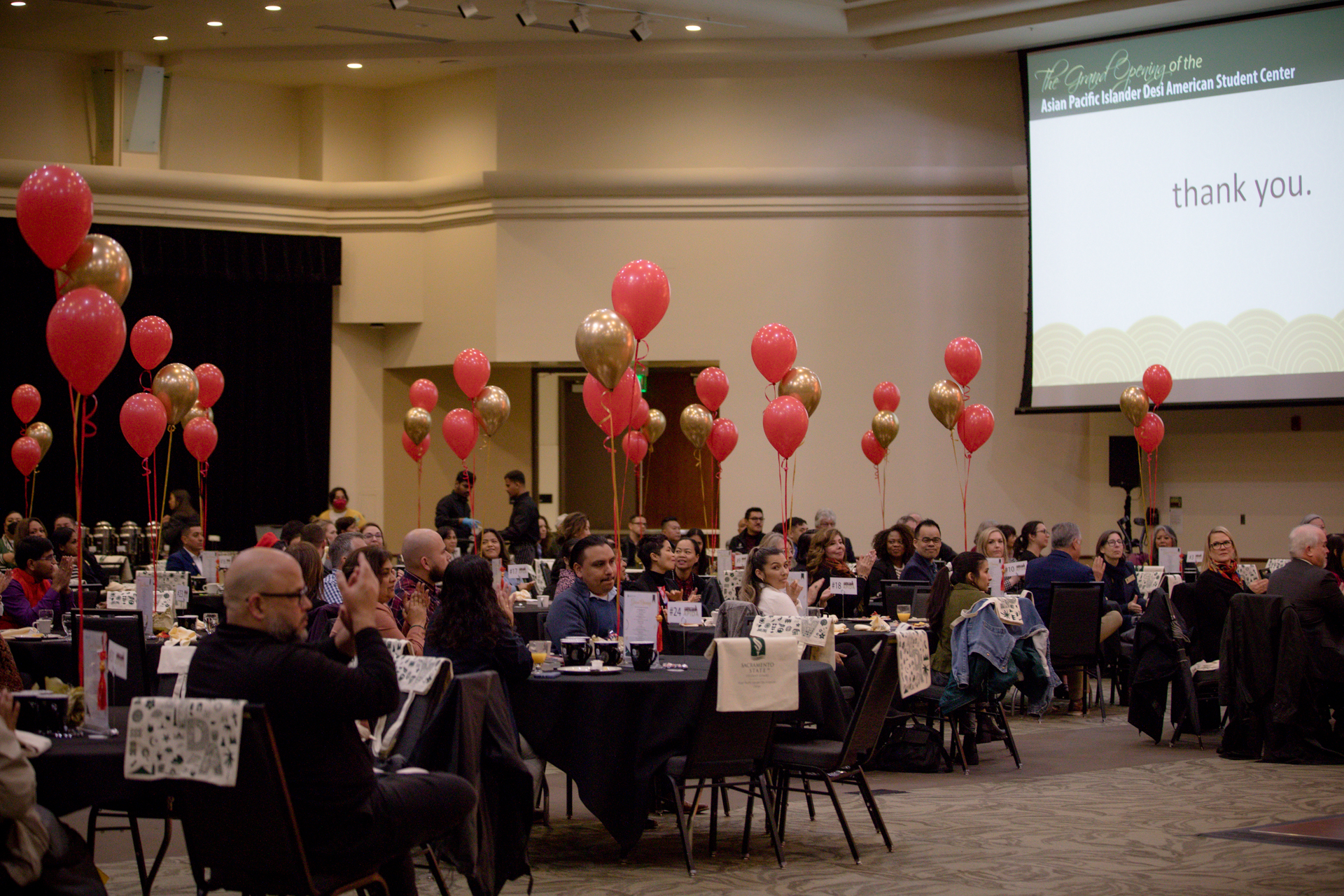Story Content
Student documentary showcase focuses on Asian Pacific Islanders grappling with pandemic, rise in hate crimes
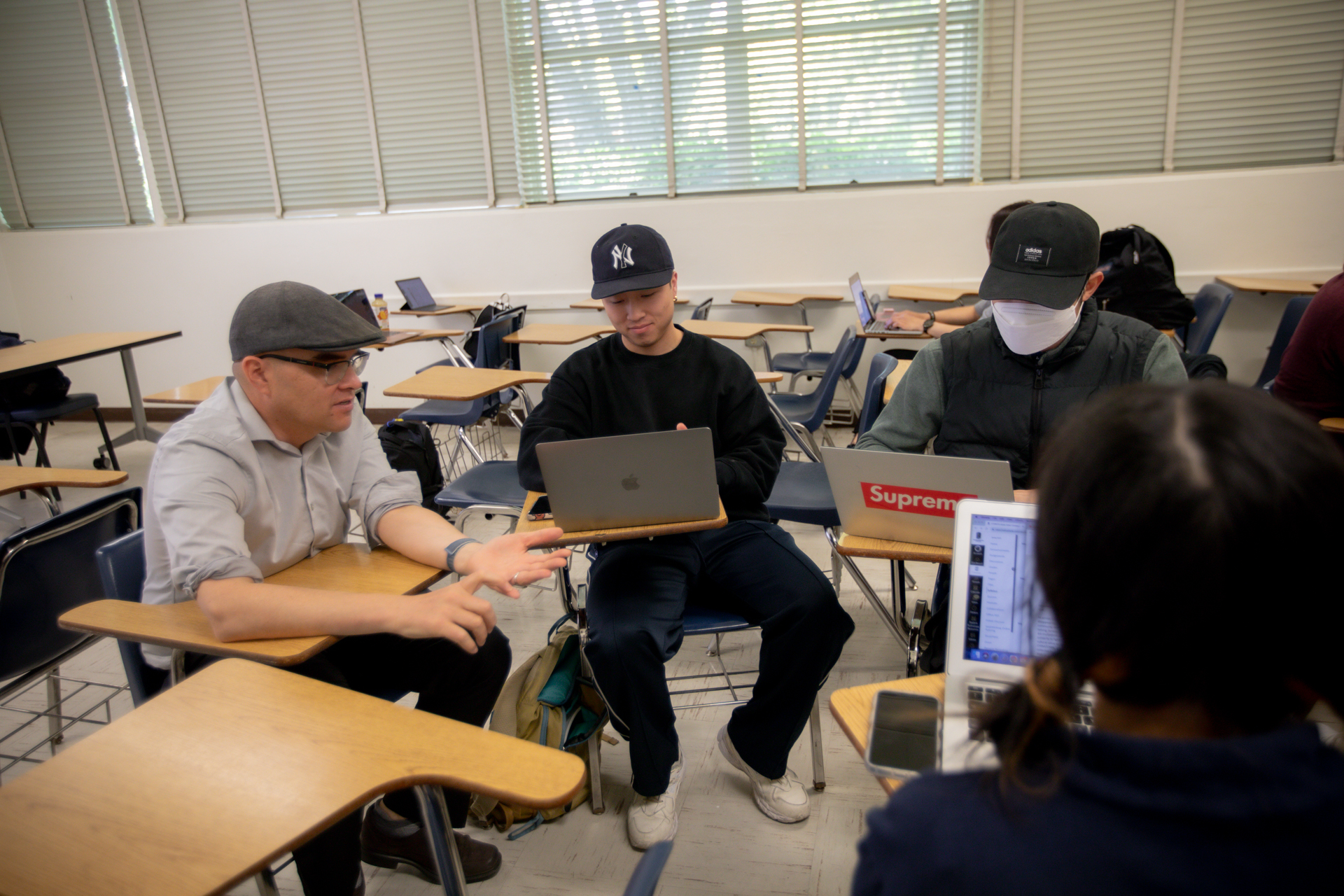
April 27, 2023
When Sacramento State senior Kiran Bains signed up for the Asian American Communities class this spring, she was just ticking off a graduation requirement.
She had no idea how to set up a camera, position a mic or shoot background footage.
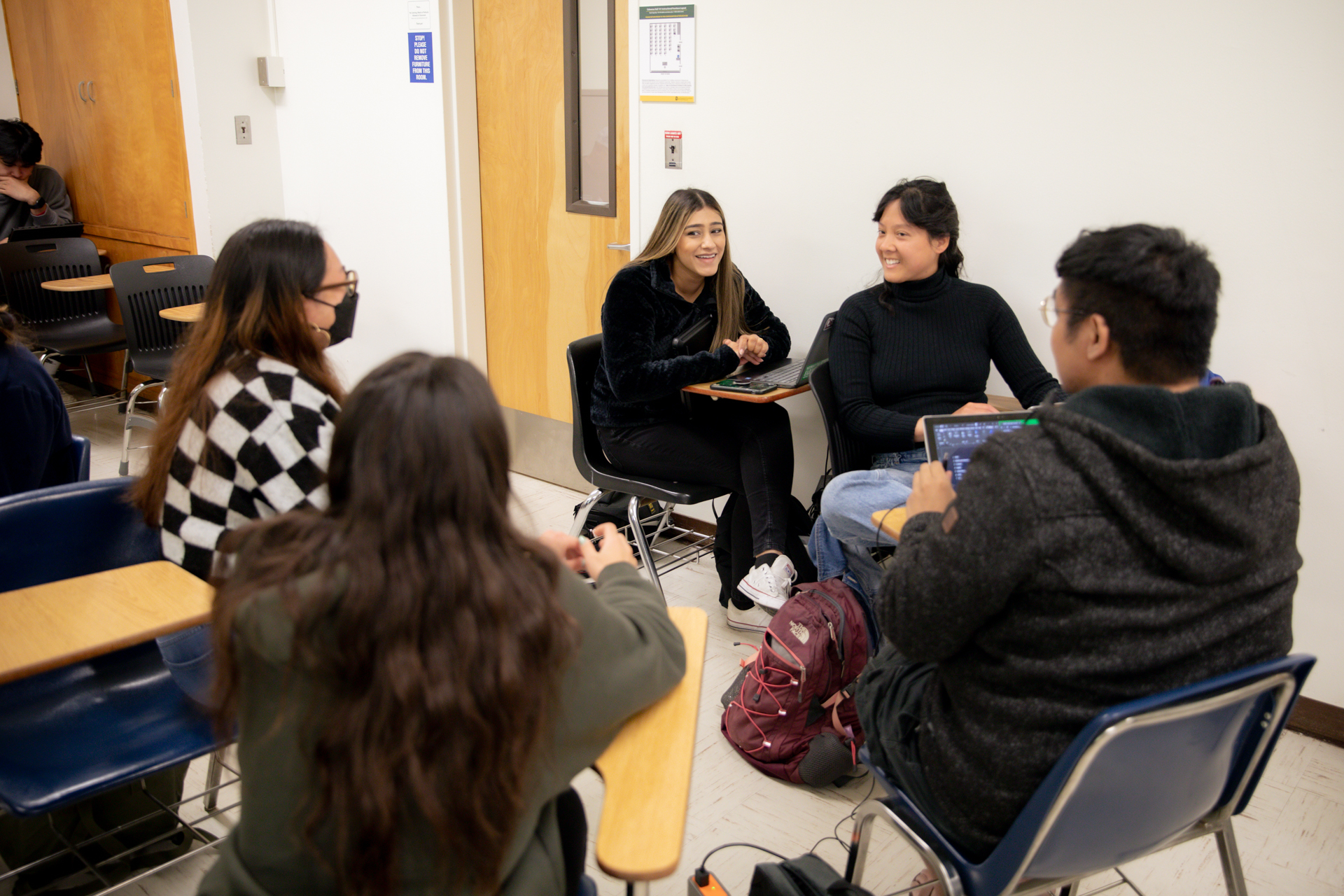
Several weeks into the semester, however, the Political Science major and her teammates were making a documentary about a nurse practitioner who caught COVID-19 early in the pandemic.
“She talks about the dark places she went to. She even touches on how there were times when she felt like if she died, it would be OK,” said Bains, whose film focuses on mental health in the Asian American community.
“It’s something that’s seen as very taboo, so we love that we’re able to shine a light on it and bring it to mainstream attention. We’re making a difference by putting stories out there that weren’t out there before.”
The first Stop the Hate Arts and Media Showcase May 2 featured stories about local Asian Pacific Islanders grappling with the pandemic, even as the number of hate crimes against them increased.
Now, the short documentaries created by Sac State students will be screened during the Sacramento Asian Pacific Film Festival May 13 at The Sofia.
The Asian American Studies program received a $150,000 Stop the Hate grant from the California Department of Social Services to buy video equipment for students to make documentaries about the Asian American community during the COVID-19 pandemic.
The state agency awarded nearly $14.3 million last year to 80 nonprofit organizations providing services to people affected by bias and hate crimes.
Sacramento State is the only university in Northern California to receive a Stop the Hate grant, and the only CSU campus.
“We wanted to elevate their stories and voices and challenge the mainstream media’s concept of what their experience was during the pandemic. A lot of the focus was only on Asians as victims of violence.” -- William Gow, assistant professor in the College of Social Sciences and Interdisciplinary Studies
Sac State worked with several local nonprofits to apply for the grant with the common goal of increasing awareness and reducing anti-Asian violence, Asian American Studies Director Bao Lo said.
“We had a better chance of receiving this grant if we did a collaborative application with regional organizations,” Lo said. “Sacramento is really diverse, but segregated. The communities that aren’t at the table can’t be a part of advocating for resources on their behalf.”
Assistant Professor William Gow redesigned his Asian American Communities course in fall 2022 to focus on the COVID-19 pandemic. In addition to conducting oral histories, students created video documentaries challenging anti-Asian stereotypes.
“We wanted to elevate their stories and voices and challenge the mainstream media’s concept of what their experience was during the pandemic,” Gow said. “A lot of the focus was only on Asians as victims of violence.
“Holistically, the media did not look at all the ways Asian Americans lived and experienced and fought back against the things that were happening during the pandemic, like the rise of anti-Asian hate and anti-Asian rhetoric.”
Racially motivated crimes against Asian Americans surged during the pandemic, jumping 77% between 2019 and 2020, according to the U.S. Department of Justice.
In March 2021, eight people – including six women of Asian descent – were gunned down and killed when a 21-year-old white man went on a rampage at three spas in Atlanta.
That year, Sac State student Summer Lomendehe took a gap year before transferring from Cosumnes River College.
“The pandemic was at its peak, and I was just lost,” said Lomendehe, a double major in Journalism and Ethnic Studies. “The Atlanta shooting weighed heavily on me. … I saw the way mainstream news outlets were covering the shooting, and it made me really mad.”
Lomendehe particularly objected to a Charlotte County sheriff’s department captain, who seemingly empathized with the shooter.
He’d described the alleged gunman as being “fed up” and “at the end of his rope.”
“He said the shooter had a bad day, and media outlets were echoing that,” she said, adding that coverage of diverse Asian American communities throughout the pandemic focused solely on how they were victims.
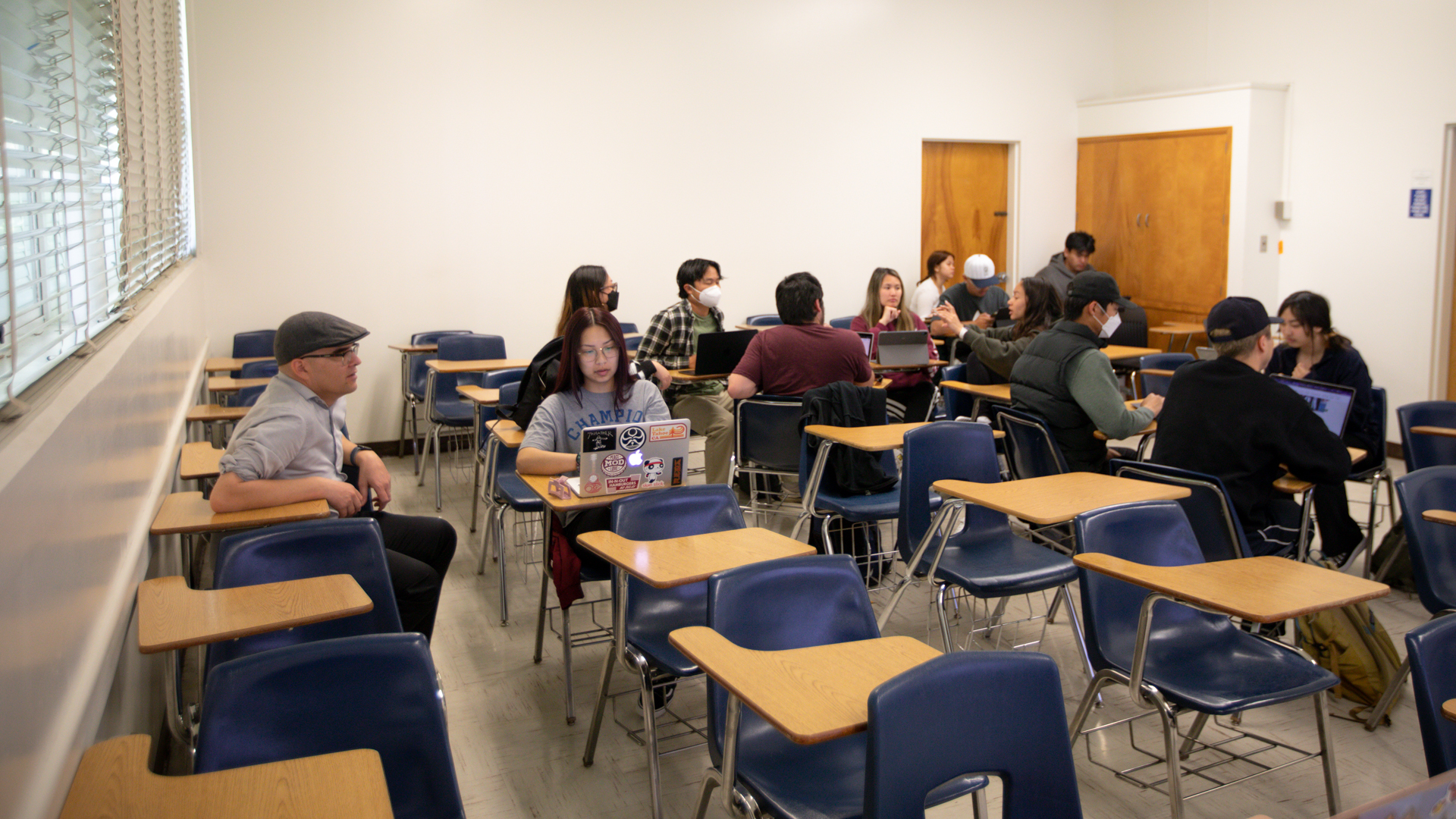
“We feel joy, we feel confusion. To really pigeon hole us into this feeling of victimhood really did not sit well with me, especially as a journalist, because I knew there were so many other stories you could tell.”
Underneath the anger and sadness, Lomendehe said she knew she had to help, and Gow’s class last fall showed her how.
She and two classmates created an eight-minute film about three generations of a family living under one roof during the pandemic, including a deaf and mute grandmother.
“Stories like that aren’t really highlighted by the media,” Lomendehe said.
Bains and her teammates, Rachel Acob and Joshua Cadelina, interviewed Acob’s mom and sister, who both caught COVID in the fall of 2020, months before vaccinations were available.
Although Cadelina said there were tense moments during their interviews, the students were surprised by how candid their subjects were. Acob’s mom even talked about how she had to contemplate the possibility of her own death.
“I was doing the interview with Rachel standing there, and it was the first time she’d ever heard her mom talk like that,” Bains said.
“In the Asian American community, women are always supposed to be more private, strong and put on a brave face. … It was nice to have someone like her, an elder in the community, be so open with us and give us a different perspective.”
Gow said interviews conducted by his students are available online through the University Library’s institutional repository at the Sacramento COVID-19 Asian American Oral History Project.
“Anyone in the world who wants to know what Sacramento’s Asian American community experienced during the pandemic can access it,” he said.
Gow and Lo anticipate receiving a second round of funding to purchase laptop computers and set up a permanent editing room.
The student documentaries will be part of the Sacramento Asian Pacific Film Festival's Media and Community Connections Panel at 1 p.m. May 13.
Media Resources
Faculty/Staff Resources
Looking for a Faculty Expert?
Contact University Communications
(916) 217-8366
communications@csus.edu
